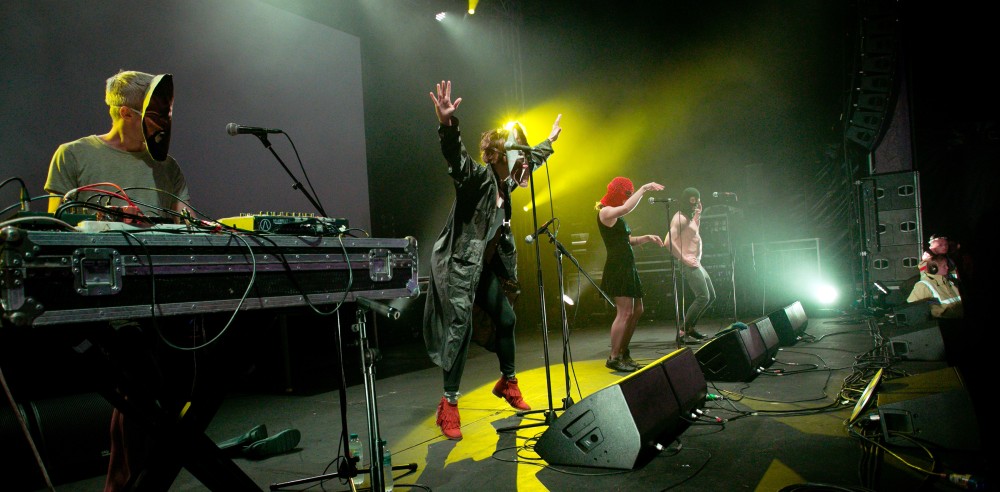Pussy Riot cofounder sees protest as a Christian gesture
The Russian punk group headlined Greenbelt, the top U.K. Christian arts and activism festival, this year.

Maria Alyokhina, cofounder of the Russian feminist punk band Pussy Riot, is angry at the suggestion that she is an enemy of religion.
“What we are doing is criticizing the establishment elite of the church,” said Alyokhina, 30, after the group headlined Greenbelt, the U.K.’s foremost Christian arts and activism festival, in late August. Pussy Riot, which began with the 2012 protest that resulted in Alyokhina spending two years in a labor camp, should be understood as a “Christian gesture.”
Pussy Riot is better known in the West for its political resistance—most recently running onto the field dressed in police uniforms during the World Cup final in July in Moscow.




